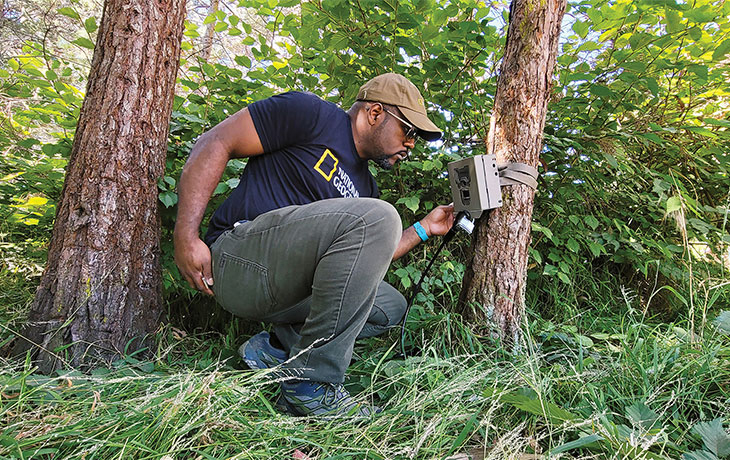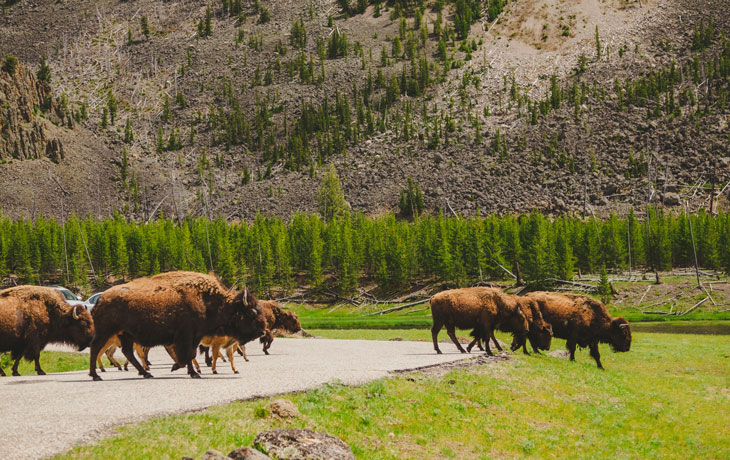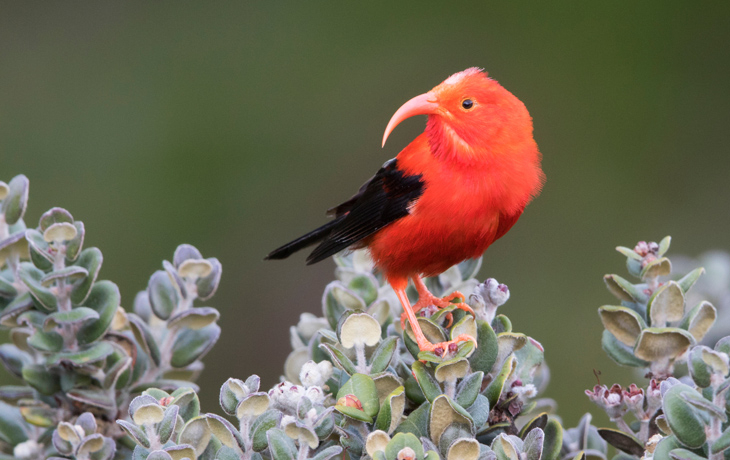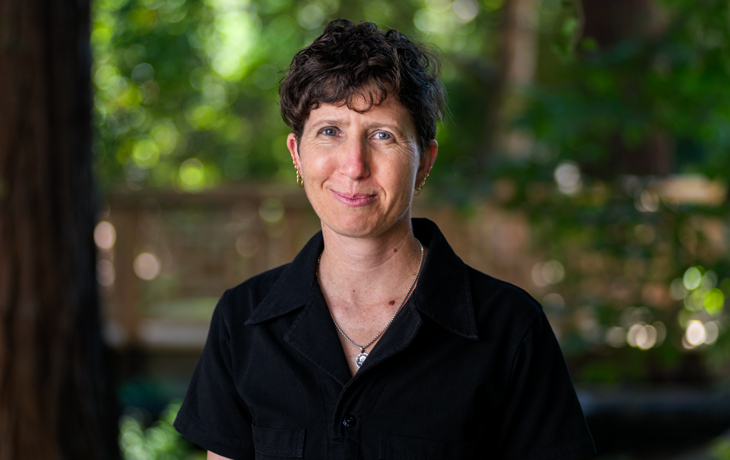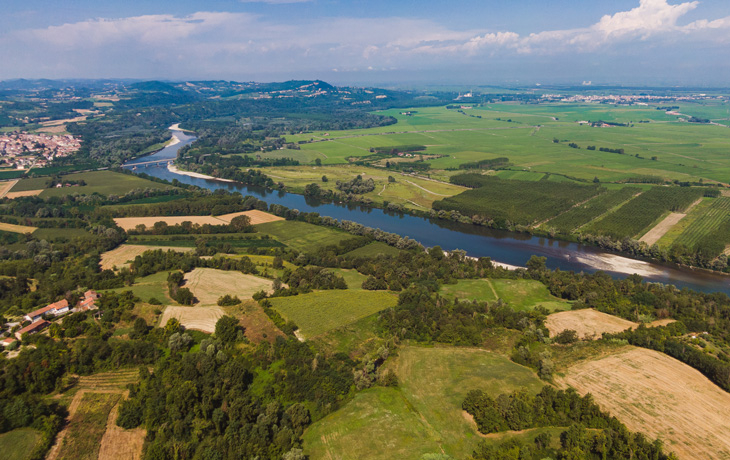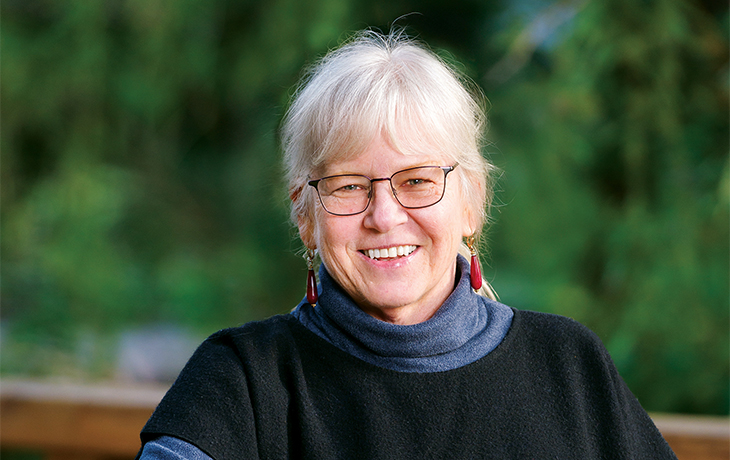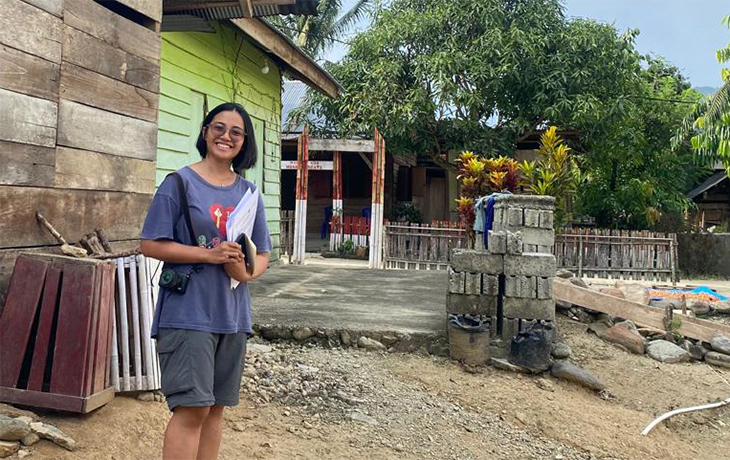Rooms 304 and 205 in Hilgard Hall now bear the names of the UC Berkeley scientists who brought science-based natural resource management to the National Park Service.
On the Ground: National Geographic Explorers
Highlighting some of the Rausser College students, faculty, and alums affiliated with the esteemed Society.
Gordon Rausser named 2025 Distinguished Emeritus of the Year
The award, which is bestowed by the UC Berkeley Emeriti Association, recognizes Rausser's contributions to research and service to UC Berkeley since he retired from the Department of Agricultural and Resource Economics in 2019.
Conference fosters connection in growing seaweed industry
The inaugural workshop of the International Bioeconomy and Macroalgae Center convened an international, interdisciplinary group to focus on advancing seaweed research, cultivation, and application.
New insights about birds in San Francisco’s community gardens
ESPM assistant professor Alejandra Echeverri co-authored a recent study that explored trends in bird sightings at community gardens in low- and high-income neighborhoods.
Linking landscape conservation and wildlife viewing in protected areas
A new study from the Stone Center researchers and collaborators finds that national park visitors would donate to support conservation efforts.
Q&A: California-China Climate Institute
The California-China Climate Institute advances subnational climate action.
New NAS report details how climate change harms biodiversity
Draft chapters of a new National Academy of Sciences report co-authored by ESPM associate adjunct professor Patrick Gonzalez detail how human-caused climate change affects the biodiversity of plants, animals, and ecosystems that sustain nature and human well-being
Shreya Chaudhuri on how UC Berkeley inspires the courage to make change
The 2025 Rausser College student commencement speaker urged graduates to recognize the potential of using their voice and UC Berkeley education to change the world.
Rosalie Fanshel recognized with leadership in graduate diversity award
Fanshel, a 2025 ESPM PhD graduate, received the Graduate Division's Cynthia Ladd-Viti Award for integrating justice, equity, diversity, and inclusion within their teaching, mentoring, advising, and research.
Professor Patrick Shih honored by the American Society of Plant Biologists
Shih, an assistant professor in PMB, is the Society’s 2025 recipient of the Charles Albert Shull Award.
(Not) The End of Chocolate
PMB professor emerit Brian Staskawicz and IGI researchers are working to safeguard the planet’s supply of cacao from disease.
Irrigation boosts groundwater resilience in northern Italy
Despite a decline in the groundwater stores of northern Italy’s Po Plain, a new study led by ESPM researchers found that irrigation practices make aquifers more resilient to drought.
Four seniors named 2025 Babcock Prize recipients
Endowed as a tribute to longtime soil chemistry professor Kenneth Babcock, the prize recognizes high-achieving ESPM undergraduates.
Student Spotlight: Nikita Bahadur
The graduating molecular environmental biology major spoke to Rausser College about her time at UC Berkeley and plans for the future.
How to Decipher a Forest
ESPM professor emerit Nancy Peluso has spent her career analyzing entanglements between human and natural worlds.
Trump is laying the groundwork to privatize America’s national parks, write Jon Jarvis and Gary Machlis
Former Director of the UC Berkeley Institute for Parks, People, and Biodiversity Jon Jarvis co-authored an Op-Ed published in The Guardian May 12th.
ERG alum Malini Ranganathan wins Anthony Leeds Book Prize
Ranganathan, PhD '15 Energy and Resources, was recognized by the Critical Urban Anthropology Association for the innovative methodological and theoretical contributions to urban anthropology of her latest book, Corruption Plots.
LA’s communities of color bear a disproportionate burden of air pollution
A recent study led by ESPM researchers found that disadvantaged communities in Los Angeles experience significantly higher concentrations and emissions of hazardous air pollutants than non-disadvantaged communities.



